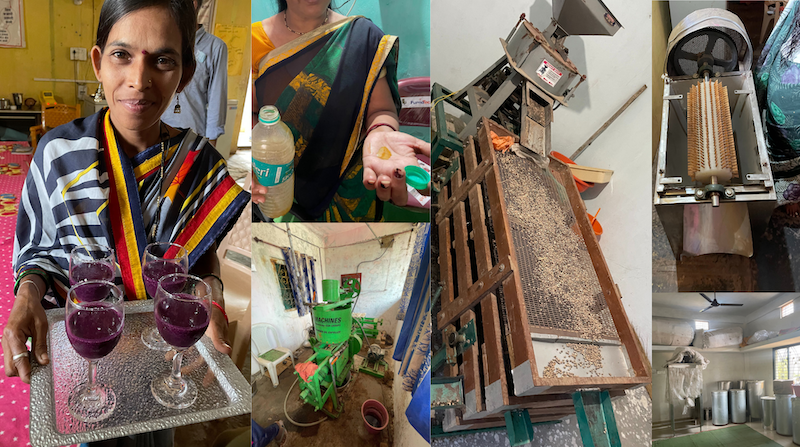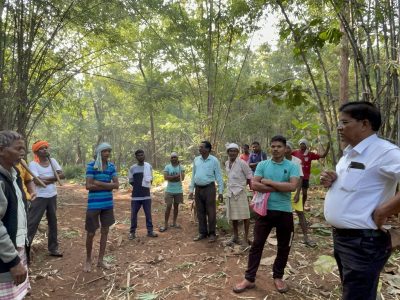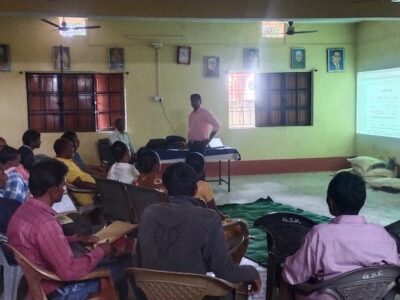Mechanization provides new opportunities for CFR communities in Gadchiroli

In the Gadchiroli district of Maharashtra, Seasonal Forest Products (SFPs) like Chironji seeds, mahua flowers and seeds, Hirda and Beheda fruits are collected by women. These SFPs significantly contribute to household cash incomes during the lean season. Much of the pre-processing required for these SFPs is currently done manually, consuming time and energy of the women collectors who are already responsible for multiple duties. Simple technologies can reduce the drudgery of these tasks and increase their productivity, releasing them for other work. Many of these technologies, already widely available, also provide new avenues for processing that are often not even possible with simple manual labor. UMED, the State Rural Livelihoods Mission of the Government of Maharashtra, is working with women’s self-help groups and their federations to experiment with such technologies in Gadchiroli district.
A simple milling unit for shelling Chironji seeds in Kurkheda taluka reduces time and labor by an order of magnitude. For comparison, similar seeds of the Hazelnut tree in Chamba, Himachal Pradesh, are shelled by women using stone age technology – literally putting one seed on a flat stone and hitting it with another to break the shell one at a time. Women in Gumla, Jharkhand, do the same with Sal seeds. The milling technology, at least 5000 years old, has been creatively adapted in Gadchiroli to great effect!
Mechanization makes creating new products possible, and with it comes the possibility of creating and retaining more value at the community level. UMED’s efforts in this dimension are equally inspiring. In Neharpayali village, women have set up a small oil extraction plant to produce oil from Mahua seeds. In another village, women are extracting essential oils from medicinal plants using easily available technology, that are then sold at high prices. In one case, women are extracting juice from wild Jamun fruits for sale, in addition to shipping the Jamun fruits for sale in distant Nagpur. Mechanization has opened new possibilities that are difficult to even imagine with manual labor.
ISB’s Initiative on the Forest Economy sees this as an opportunity to extend customized mechanization for other SFPs like Mahua, Hirda, and Beheda in collaboration with UMED. Mahua requires mechanized solutions for cleaning and drying to increase the shelf life of the product, whereas an intervention is required for drying, sorting, and grading Hirda and Beheda fruits. We will collaborate with UMED to aggregate women collectors of SFPs in Gadchiroli and use mechanization to create value at the local level while also reducing the drudgery for women.



